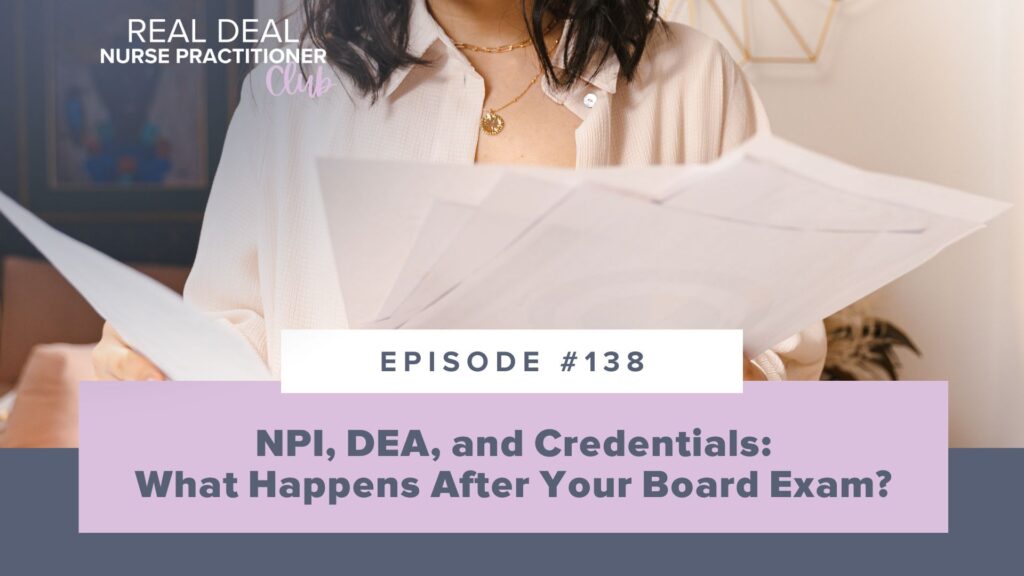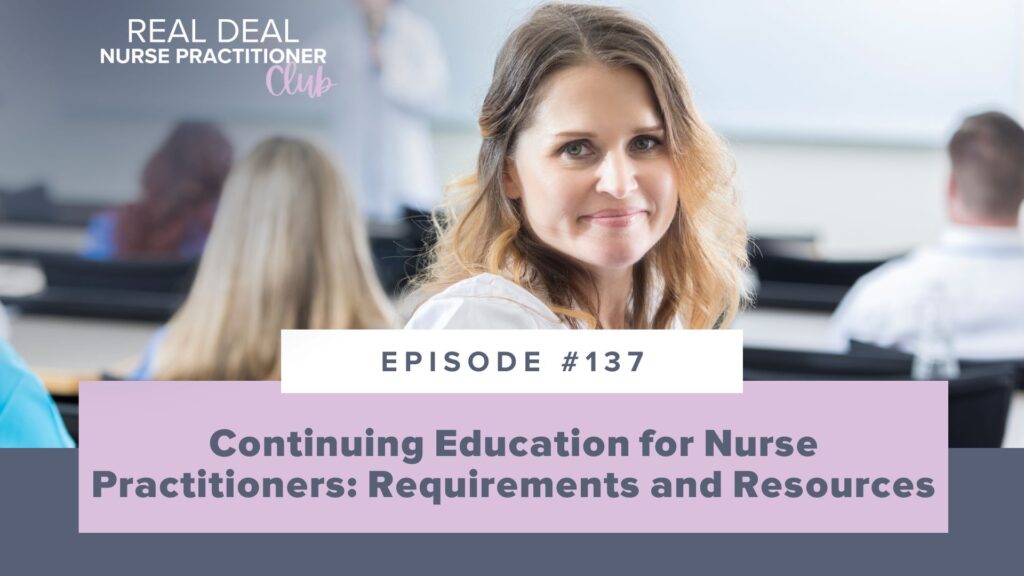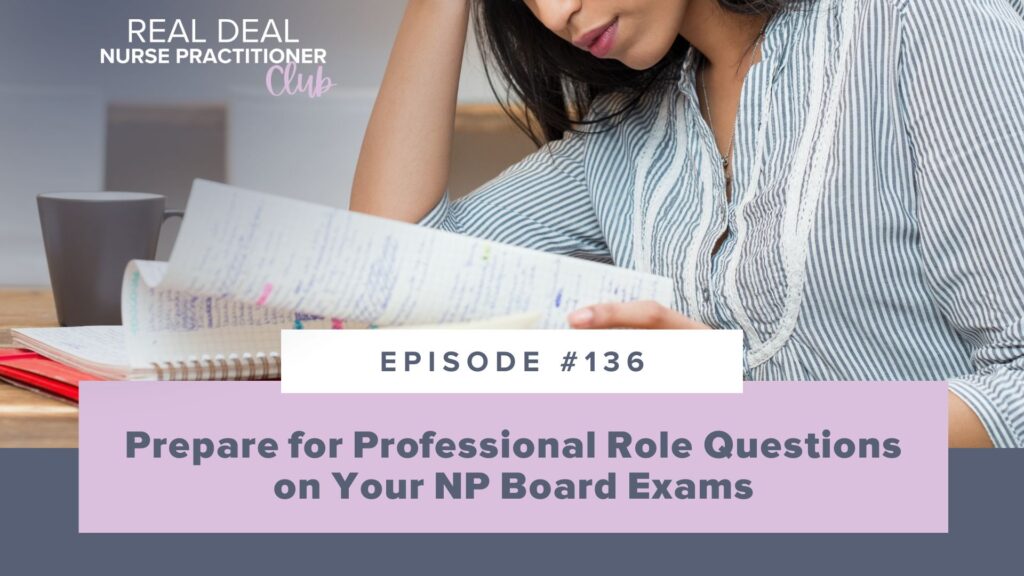Episode #112: How to Boost Your Confidence in Clinical Rotations
- by Sarah Michelle
- May 01, 2024
- Podcasts
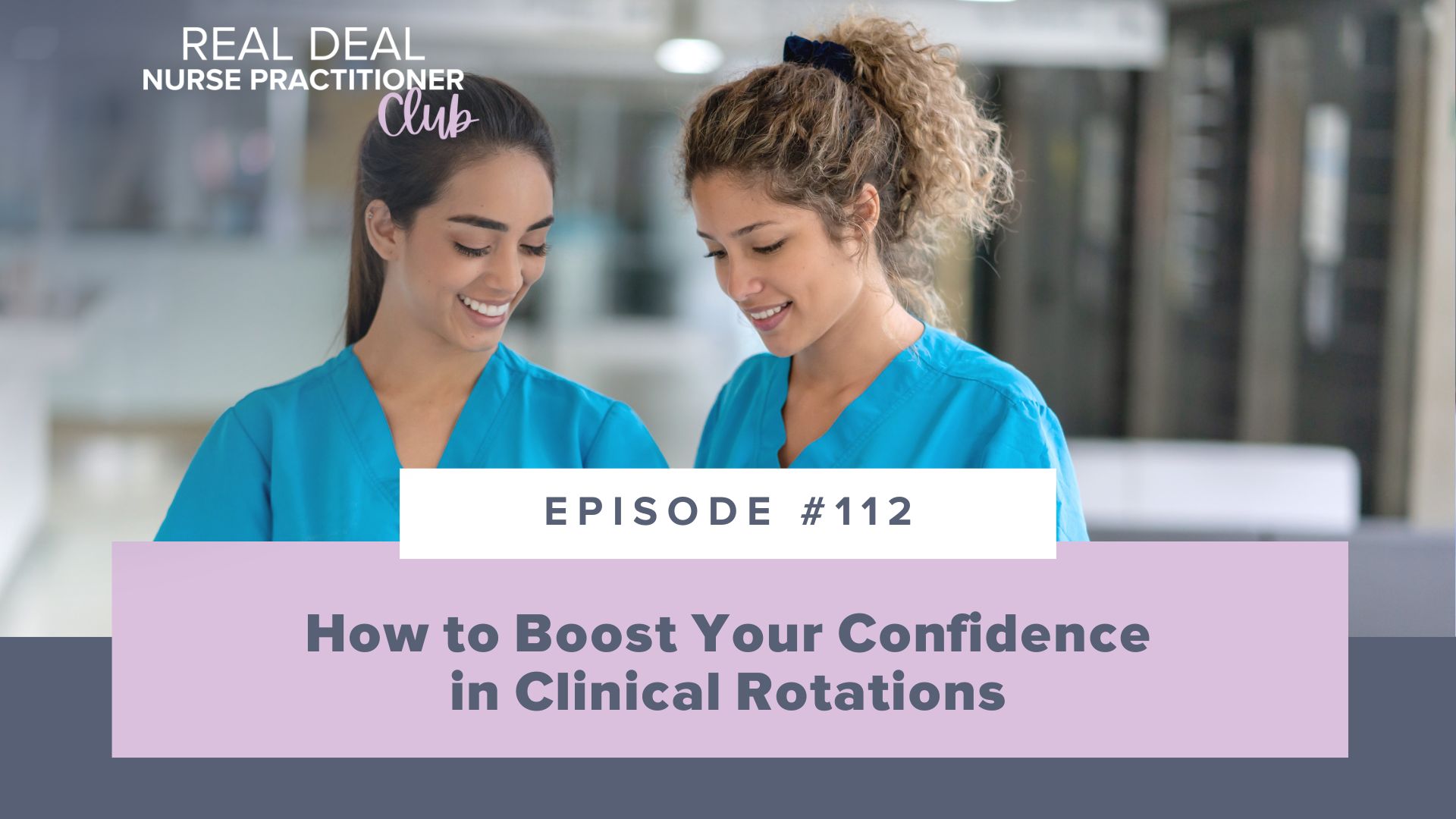
As you know, we’re all about decreasing anxiety and increasing confidence here at SMNP. We believe this is an essential part of thriving as a real-deal Nurse Practitioner, so today, Anna and I are here to dive into increasing your confidence in the clinical setting.
You can probably remember how intimidating and overwhelming it was in your very first job as a new nurse, and starting out in your Nurse Practitioner career is no different. You’re learning new skills with a higher level of responsibility and liability, so if you’re not yet walking around with the confidence of a seasoned NP, you’re not alone.
Tune in this week as Anna and I offer our top tips for increasing your confidence in clinical rotations. You’ll learn why improving your communication skills is the best place to start, our advice when it comes to asking for help, and how to seek out the mentors you need for support along the way.
What You Will Discover:
- Why improving your communication skills is the best place to start for increasing your confidence.
- What it means to be assertive.
- The value of being up to date on new treatments and guidelines.
- Our tips on asking for help and getting to know everyone.
- How expanding your network helps increase your confidence.
Featured on the Show
Full Episode Transcript:

Welcome to the Real Deal NP Club. Whether you’re hoping to become a real deal nurse practitioner or you already are one, this is the place for you to get the resources you need as you tackle this massive transition into practice. We’re your hosts, Sarah Michelle, Chief Nursing Officer of Blueprint Test Prep, and Anna Miller, Director of Nursing Content. And we’re here to hang out with you each week like your best friends in the NP space. Let’s dive in.
Sarah: Hello, my friends. As you all already know, a big focus here at SMNP is to decrease that anxiety and help increase your confidence as NP students. So whether you’re in clinicals, even as a Real Deal NP, and so today’s episode is all about increasing that clinical confidence.
You all probably remember what it was like to start your very first new job as a new nurse, and I’m sure you might have been a little overwhelmed. It might have been intimidating at first. And really, starting into your NP career is no different.
You have a new skill set that you’ve been trained for with a higher level of responsibility and liability, and it is understandable that you are not going to be walking around with the confidence of a seasoned nurse practitioner quite yet. But Anna and I are going to go over some great tips in this episode to increase your confidence in the clinical setting, whether you’re still in school or starting out in that first NP job.
Anna: Yeah, I remember all too well how I felt walking into that very first clinical rotation. I was so excited to start getting the experience, but it was so intimidating. And there were days I felt like that even on my very last clinical rotation as well. And it’s just so common to hear new grad NPs say the same thing about starting their career, right?
We’ve got some great tips, though, that we can use to help your confidence blossom, and confidence in your role and in yourself will increase that job satisfaction. And you all have worked so hard to get where you are, so definitely remember that.
Sarah: Absolutely. So to kind of jump in and get started a little bit, practicing and improving your communication skills is really one of the best places to start. And we’re not going to focus on communication with patients, because as nurses you’re likely already pretty seasoned and comfortable at talking with patients.
But being a student or clinician in the office, talking to your preceptors and mentors and carrying yourself with confidence takes time, and it definitely takes some skill, too. So the first tip that I actually have is to be assertive while also still being kind. So there’s a little bit of a caveat there.
Being assertive means to communicate directly and clearly while not being condescending or rude. And this took me a little bit to figure out how to finesse and learn. I personally am a natural people pleaser, so when something made me uncomfortable or I had a suggestion for a change, I was not always the best at communicating that.
Something to help is to practice those conversations in the mirror or with a friend. I always practice these kinds of conversations with my husband. And while it may feel really silly in the moment, practicing saying your thoughts out loud can actually be super duper helpful.
Anna: Yeah, I am the same way. I actually talk with my daughter a lot about what we call using her strong and polite voice. And another thing that really helped us was just to ask questions. Lots and lots and lots of questions, right?
Maybe you just cared for a patient and you want to go over a management plan. Ask your preceptor all of the questions that you have. Or if you’re a new grad, find a colleague you can go over the case with. Maybe you’re not sure how to put a referral in, ask the appropriate staff. Or maybe you’ve got some downtime, ask someone what you can do to help.
Asking questions will get you out of your shell and ultimately you’ll feel more confident and comfortable in reaching out.
Sarah: Yes, I think sometimes people view asking questions as a weakness, but it is definitely not a weakness. It is a strength. Nobody expects, even seasoned nurse practitioners, to know everything. And honestly, asking no questions is a bigger red flag than asking all of the questions.
And that goes along well with showing your self-confidence. You might be thinking, well, if I’m not confident at clinical, how can I show self-confidence? But it’s all intertwined. When you are confident in who you are, in what you know and what you don’t know, that confidence will exude elsewhere. And we know that you’re pretty great, so make sure to take some time for yourself, speak kindly to yourself, and focus on your strengths.
Anna: Yeah, I love that you mentioned just being kind to yourself. Remember, you are new. You are learning, and that is completely expected.
And so really that leads into my next tip to building confidence, which is just to build your knowledge. Yes, you’ve been in school for a while, you’ve taken a lot of tests, but there is so much to learn as you enter your clinicals and even after graduation and boards. No matter what practice setting or specialty you are in, there is usually a core number of patient conditions you are seeing.
To increase your confidence, read up on them. Make sure you are up-to-date on new treatments and guidelines. Being able to manage common conditions without constantly having to look it up will definitely help your clinical confidence.
Sarah: Yeah, that’s a great tip, and I’ll be honest, I legitimately emailed the office manager or the clinical coordinator, like whoever was setting me up before my clinical rotations in school, and just asked what are the most common patients and conditions that are seen here? And I would print out up-to-date algorithms and just have them easily accessible for those things as well.
And this is true no matter where you are in your NP journey. I have a colleague who is an NP for several years and has started in a new specialty doing primary care pediatrics. And as you may know, pediatrics includes developmental milestones and vaccination schedules and different medication dosing. There’s a lot of variety there. And so they would carry a clipboard with the protocols and common medication doses as a quick reference. And they said it really helped them just to feel more organized and confident when they were really starting out and getting their feet under them.
Anna: Yeah, and we lean into this concept a lot, right? Just nurses are lifelong learners. Embrace that knowledge equals power and confidence.
Sarah: And something else that always helped me when starting somewhere new is just to be friendly and be your genuine, authentic self. You don’t have to set out to make new best friends with your colleagues and staff, but just being approachable and taking an interest in others, like a genuine interest, goes a long way.
Anna: Yeah, and we already mentioned asking others if you could help in any way, that’s how we learn new skills, but it’s also how we build camaraderie. Especially when you are new, if you have downtime ask around for what you can be helping with and get to know everybody.
Sarah: And maybe politely ask about any office events coming up. You know, do they do like a potluck lunch? Is someone’s birthday coming up? A lot of offices turn into that kind of second family, so get to know them. And with that, let them also get to know you.
Ana: Yeah, like Sarah said, we already know you are awesome, so be your genuine awesome self. We all want to fit in with a group, but you can’t do that by trying to be someone you’re not. So let your light shine and your confidence will, too.
I can say that I truly am fortunate enough to be able to be my true self at work every single day, and that alone really increases my job satisfaction and my confidence, even when I feel like I am still barely figuring it out some days.
Sarah: And next, we also want to recommend getting a mentor as well. So this can be your preceptor if you’re in school, or if you’re in practice hopefully you have someone in your office that you’re orienting with, and oftentimes they continue to be a mentor for you long after your orientation is over. So if you didn’t get much of an orientation, maybe you’re the only provider in the office, you’re probably going to need to identify your own mentor and resources, and that’s another pivotal step as well.
Anna: Yeah, don’t limit yourself to thinking it has to be someone in the office physically with you. Mentors can even be a former preceptor that you had a really good connection with, or maybe a peer of yours that you’ve really looked up to. Having a clinical mentor is great, but it may also be helpful having a non clinical mentor or any type of coach that you can use as a sounding board, right? Sometimes you don’t have to have a clinical practice question, you just need a neutral person to bounce ideas off of or talk to.
Sarah: That’s a really great point. Get out there, make sure you’re networking. We always harp over and over about networking but it’s just a great way to break out of your shell and your comfort zone and build up that confidence that many of you out there are so desperately seeking. You know, there are a lot of great conferences and activities for nurse practitioners, so make sure you’re checking out your state nursing conference. And there are always national conferences too, through like AANP, for example.
Or maybe you really want to learn new clinical skills. There are tons of conferences about office procedures or clinical specializations. And sometimes conferences are in beautiful areas of the country, so why not expand your knowledge, your network, and have some fun traveling at the same time. I know I definitely will be this year myself.
Anna: Yeah, I’m already having a conference booked in Orlando, and I’m planning my trip right alongside that. And I’m ready to also hear you speak at conferences this year. So I always love going to conferences. And it’s just such a great opportunity to learn new things and make connections. And a lot of times your NP contract will include allowances for continuing education. So use that to your advantage.
Sarah: Yes, all the conferences, make sure you’re using up your funds, especially if they’re offering it to you.
And another great way to improve that clinical confidence is really just to be prepared for your day. This includes, I know this sounds like generic advice, but it’s important advice, getting quality sleep, eating a good breakfast, not rushing into work, and being organized because when we don’t feel flustered, we can easily be more confident.
Anna: Yeah, absolutely. And during my clinical rotations, especially if I had a few days in a row of clinicals, I learned that it was really helpful to go ahead and look at the schedule for the next day. Then I could review patients charts, see who we were going to be seeing. Especially if they were new to me. I would make sure I looked at any relevant labs or consult notes or anything that I needed to refresh on in preparation for the visit.
And yes, this took extra time on my part, but it really allowed me to look up what I needed to and it paid off in better care for my patients and ultimately more confidence in myself walking into those rooms.
Sarah: And lastly, and maybe most importantly here, just remember that confidence takes time and no one expects you to know everything, either on your first day or even your hundredth day or thousandth day.
Also, though, take pride in all that you have accomplished. You’re completing NP school, you’ve passed your boards or you’re getting ready to, maybe you’ve landed that first job as a real deal NP, and those are definitely things to be proud of.
Anna: Absolutely. And along those lines, try not to compare yourself to anyone else. You may have peers that got better grades in school, or maybe they got a job before you, or maybe they just seem to be more successful than you in other ways. But you’re looking at this from the outside, and that’s okay, but remember that’s not always true. And we are all on our own journeys. So our timeline to success and our version of success is not the same.
Sarah: And I also feel like I just have to be really honest and transparent with y’all and let you know this process of just building up and gaining some confidence is going to take you at least six months, maybe even your entire first year in practice to just really feel that confidence as a real deal nurse practitioner. And there is so much more to learn outside of school and a lot of personal growth that’s going to happen as well.
Anna: Yeah, someone I started with, I think last year, said it took them a good six months to even start to feel confident in their decisions and be able to express their ideas to management. But hopefully you can take some of the helpful tips from today and use them to boost your own confidence, whether you’re finishing up school or starting out in a job as an NP.
Sarah: Yeah, absolutely. And thank you so much, everyone, for tuning in today. I hope you enjoyed the topic this week because I know I definitely did. I think Anna did too. And be sure to follow the podcast wherever you stream them and follow SMNP Reviews on YouTube and Facebook. But until next time, my friends.
As an extra bonus friends, if you’re looking for support no matter what phase of your nurse practitioner journey that you’re currently in, I have communities available for both students and new nurse practitioners. In these communities, we work to uplift one another and grow this profession together every single day. Links to join will be included for you in the show notes.
Thanks for listening to the Real Deal Nurse Practitioner Club. If you want more information about the different types of support that we offer to students and new nurse practitioners, you can visit npreviews, with an S, dot com. We’ll see you next week.
Enjoy the Show?
- Don’t miss an episode: follow the podcast on Spotify, Apple Podcasts or RSS.
Related Posts
Search the Blog
Prepping for Primary Care NP Boards?
Join our Primary Care Live Study Group or check out the Self-Paced Courses & Qbank options!
Learn MoreExplore Specialty NP Qbanks & Mock Exams
Practice with board-style questions for your AGACNP, PMHNP, ENP, WHNP, or PNP exams.
Get StartedJoin our Facebook Group!
Get FREE support and encouragement from thousands of FNP/AGPCNP students and our NP support team.
Join the CommunitySign Up for Free Live Classes
Join us for FREE monthly live study sessions covering topics such as antibiotics, diabetes, musculoskeletal conditions, depression & anxiety, and more!
Grab a Spot